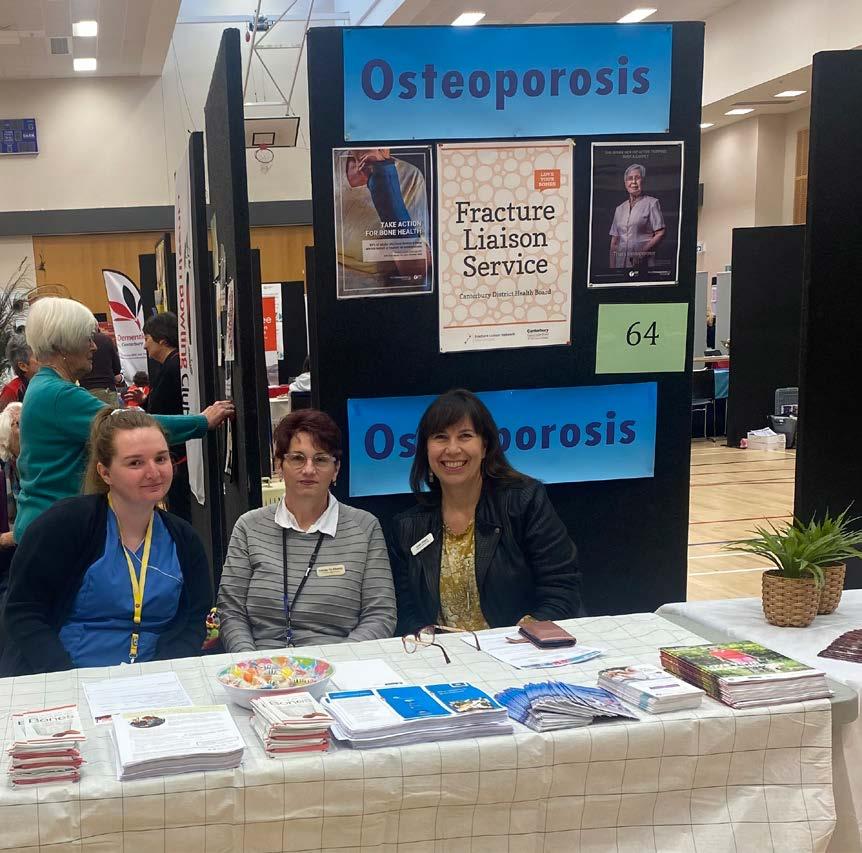
2 minute read
› Knowing your bones
We’re encouraging all of our community to know their bones.
One third of women and one fifth of men will suffer a fragility fracture over the age of 50 years and that’s where our Fracture Liaison Service (FLS) comes in. Serving Canterbury and the West Coast, the team identifies patients over the age of 50 years who have sustained a fragility fracture – such as when a person falls or trips from a standing height - and works with them to commence treatment as soon as possible. “We want to help people live healthier lives by improving their bone health. Once you’ve had one fragility fracture, you are much more likely to have another, so we put steps in place to help prevent that from happening,” FLS Clinical Nurse Specialist Cushla Parker.
Advertisement
“We aim to make the first fragility fracture the last.” Once a patient has been identified, the team’s work kicks in with a bone health assessment, falls risk assessment and a personalised care plan is created. Patients are contacted via telephone at 16 and 52 weeks post fracture to see how they are managing since their initial fracture. Other interventions include ordering bone density scans, liaising with GPs on treatment, referring patients to the Falls Prevention programme and Sports Canterbury strength and balance classes, and providing nurse-led clinics and education sessions to people over the age of 50 years in the community. People who sustain a fragility fracture already have a high chance of having a bone condition such as osteoporosis or osteopenia. In addition, once a person has sustained a fragility fracture and has a bone condition there is an 80 percent chance they will refracture within that year. “Commencing treatment reduces the likelihood of a patient refracturing by 30-70 percent. Our efforts improve patient outcomes and save healthcare costs by preventing recurring fractures in the most high-risk patients,” she says. The most common parts of the body to sustain a fragility fractures are the hip, wrist, humerus, pelvis or spine. “These fractures can be really debilitating so the work that we do creates a huge positive impact for people, helping them to remain active and live the life they want to lead. “Our FLS is growing and in Canterbury this year we are on track to have approximately 1200 patients which is the largest number of patients we as a service have ever had. Funded by ACC, the aim is to embed world-class Fracture Liaison Services across the country’s health system.” Good bone health begins with knowing your bones. Visit https://bones.org.nz/ and take a few minutes to complete the free, online self-assessment test ‘Know your Bones’.

From left, Fracture Liaison Service Clinical Nurse Specialists, Cushla Parker, Lynda Te Momo and Cath Flain




